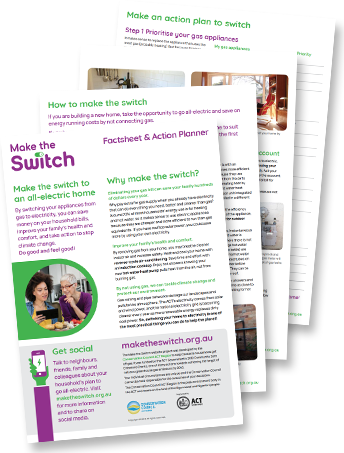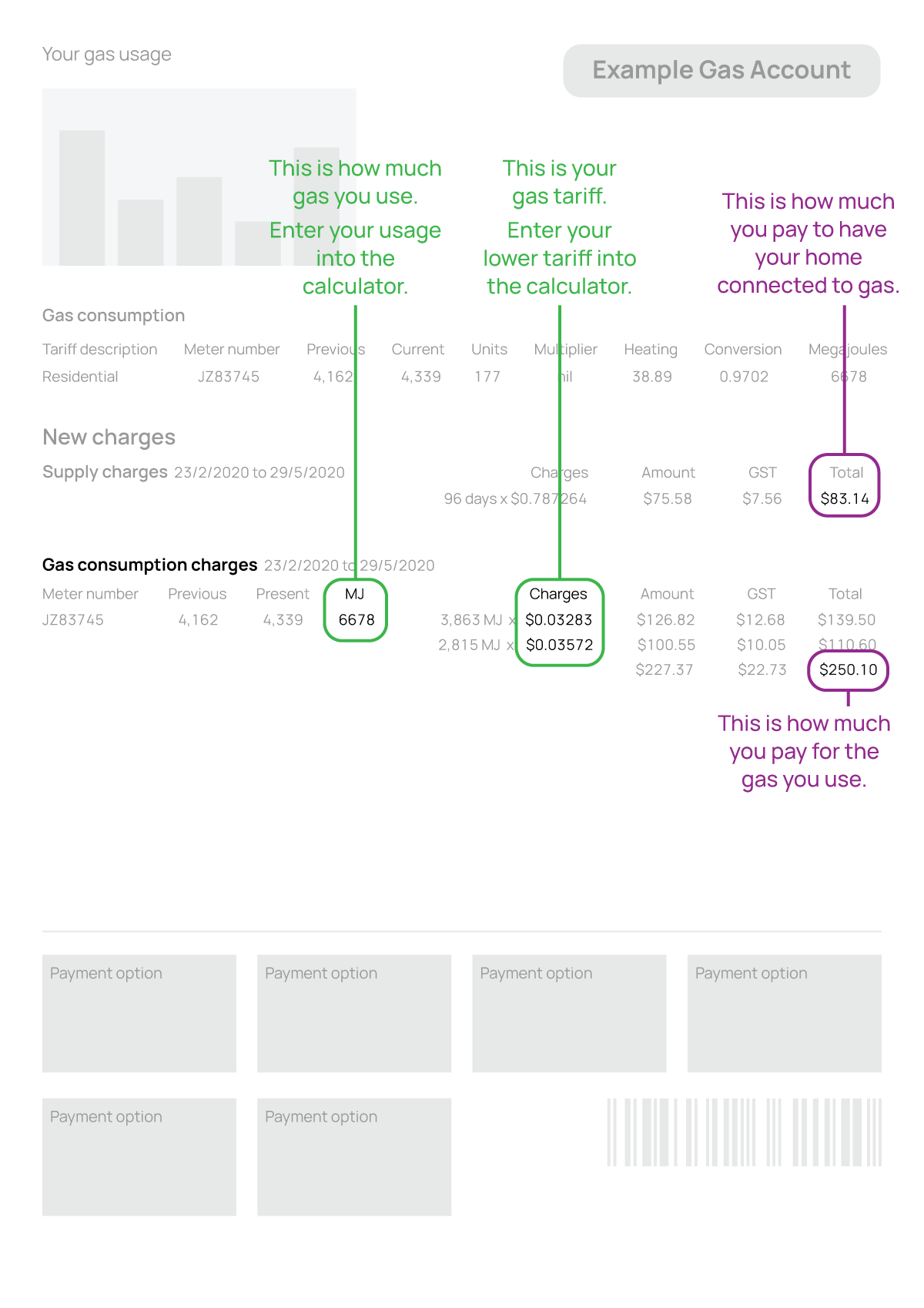To tackle global climate change, the ACT Government has committed to a legislated target of net-zero greenhouse gas emissions and phasing out the fossil gas network by 2045.
As of 2020, 100% of the ACT’s electricity is sourced through world-leading reverse auction contracts for renewable wind, solar and hydro power. The gas network now contributes approximately 22% of the ACT’s remaining emissions, with around 60% coming from transport and the remainder from waste and other sources.
Households make up 99% of gas connections in the ACT. Until early 2020, housing developers were required to install gas infrastructure in all new suburbs, and Canberrans have used ducted gas heating, gas water heaters and gas cooktops for several decades. With around 130,000 households connected to the gas network in 2023, more than 5000 households need to go all-electric every year for the ACT Government to achieve its net-zero emissions target by 2045. As of 8 December 2023, new buildings and major renovations can no longer connect to the gas network: find out more about the regulation.
This project by the Conservation Council ACT Region supports the ACT’s emission reduction targets by supporting Canberrans to switch from using gas as a home energy fuel to using the Territory’s 100% renewable electricity.
Originally developed in 2020, the website aims to answer questions people may have about gas versus electricity, and educate Canberrans about the effectiveness of technologies in our cold climate and the savings that can be made by going all-electric. It provides independent information about the environmental impacts of the gas industry and practical advice about how householders can go gas-free and take meaningful action to address climate change. The site also promotes energy-efficiency measures to help households further reduce their energy consumption and utility bills, and directs people to financial support to help them go all-electric.
The 2023 phase has added three new videos on the topics of induction cooking, health impacts of gas in homes, and tips for renters. A new page has been added with advice and resources for landlords, renters and apartment residents to help more properties make the switch. The assumptions and numbers feeding into the calculator have also been updated.

The Conservation Council ACT Region created this website to help households move from gas appliances to a home run only on renewable electricity.
The Conservation Council ACT Region is the peak non-government environment organisation for the ACT and surrounding region. We have been advocating for the environment since 1981.We represent more than 40 member groups and harness the collective expertise and experience of our member groups and networks. We work collaboratively with Government, business and the community to achieve the highest quality environment for Canberra and its region.
Project directors
Helen Oakey, Executive Director 2019-2022
Elle Lawless, Executive Director 2022-present
Content author & project officer
Kirsten Duncan, Climate Campaigner
We make minor updates as needed to keep up-to-date with Government policies and programs, and to answer more questions posed by Canberrans. Contact us if you cannot find the answers you need.
Whilst this project was developed by and for Canberrans, most of the content is applicable to all buildings that use gas. We hope that it sparks a conversation about the need to eliminate gas from our homes and workplaces.
Over the past few years, more than 50,000 people have visited this website, and our team has had hundreds of conversations with Canberrans at dozens of markets, festivals and presentations around the city. Our policy team has written many submissions and continues to advocate at the local and federal level for an equitable transition to sustainable, all-electric housing.


